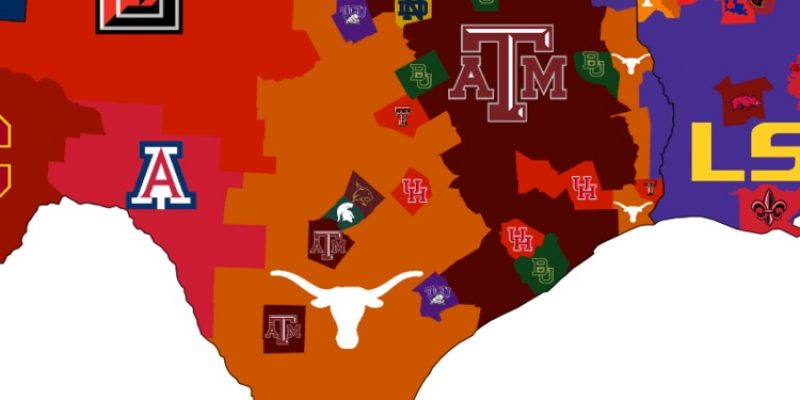Gov. Greg Abbott announced the state is allocating $57 million in federal funding to maintain need-based financial aid programs at colleges and universities to help keep more students enrolled and return to campuses this fall.
The federal money offsets potential coronavirus-related cuts to state financial aid programs, Abbott’s office says, including TEXAS Grants, Texas Educational Opportunity Grants, and Tuition Equalization Grants. The money comes from the Coronavirus Aid, Relief, and Economic Security (CARES) Act.
“This funding will help keep our students on the path to finishing their education and entering the workforce with knowledge and experience that will help them launch productive careers and attract more employers to our state,” Abbott said.
The announcement comes after many colleges and universities have said they are reopening in the fall with a combination of in-person and online classes being made available, in addition to face covering and social distancing requirements.
Rice University says it plans to reopen in mid-August with its full population on campus. All classes will be available in a hybrid format, including in-person and online, recorded sessions. Rice also plans to use contact tracing methods, precautionary isolation of individuals with possible exposure, and protocols for testing of the coronavirus. Other colleges are following similar programs.
Colleges and universities will continue to use Zoom and Microsoft Teams platforms, in addition to “Zoom in the Room,” which allows instructors to live stream in-person classes and engage with students attending class remotely.
Several schools, including the University of Texas at Austin, Rice, the University of Houston and Texas A&M University, have discussed ending the fall semester before Thanksgiving to avoid a potential resurgence of the coronavirus on campus after the holidays, the Houston Chronicle reported.
According to a report by EducationDive.com, Texas’ community colleges will help the state recover from an unprecedented oil crash driven by the Saudi-Russian oil war and coronavirus shutdown by offering short-term credentials and teaching “recession-proof” skills to laid off workers.
For years, community colleges have worked hand-in-hand with the energy sector to develop curricular priorities and train workers, Education Dive reports. Now that Texas has been doubly hit by the coronavirus shutdown and crashing oil prices from the Russian-Saudi oil war, colleges are offering even more tailored classes to help students graduate “with a multi-skilled set of competencies” to enable them to adapt to various employer needs.
Energy employers are looking for multi-skilled technicians, Christine Carpenter, director of the Energy Providers Coalition for Education, told Education Dive. The coalition is a network of employers working together to create more online educational opportunities in the oil and gas industry.
At Odessa College, near the Permian Basin, which produces millions of barrels of oil daily, students who have completed instrumentation and electronics technology programs are more marketable for a range of technician jobs today than they were a few years ago, its president said.
Houston Community College Northeast also has developed new programs and improved existing programs to adapt to changes in the oil and gas sector. The school is developing a data analytics program for the petroleum industry, which will initially be offered as a continuing education program. It also is launching an industrial worker certificate program to teach a range of skills that can be applied to multiple industries.
Monique Umphrey, president of the college, told Education Dive, “Because we’re in unprecedented territory, [employers] are going to have to define a new path, so that will require people that are resourceful and resilient. Never before has adaptability been more important.”
Colleges and universities nationwide received $12 billion in emergency CARES Act funding, allocated by the U.S. Department of Education. Half of the money was required to be used for student financial aid.
More than $54 million in Paycheck Protection Program loans established through the CARES Act went to roughly 40 small private colleges and universities in Texas, according to data released by the Small Business Administration this week.
Advertisement
Advertisement

